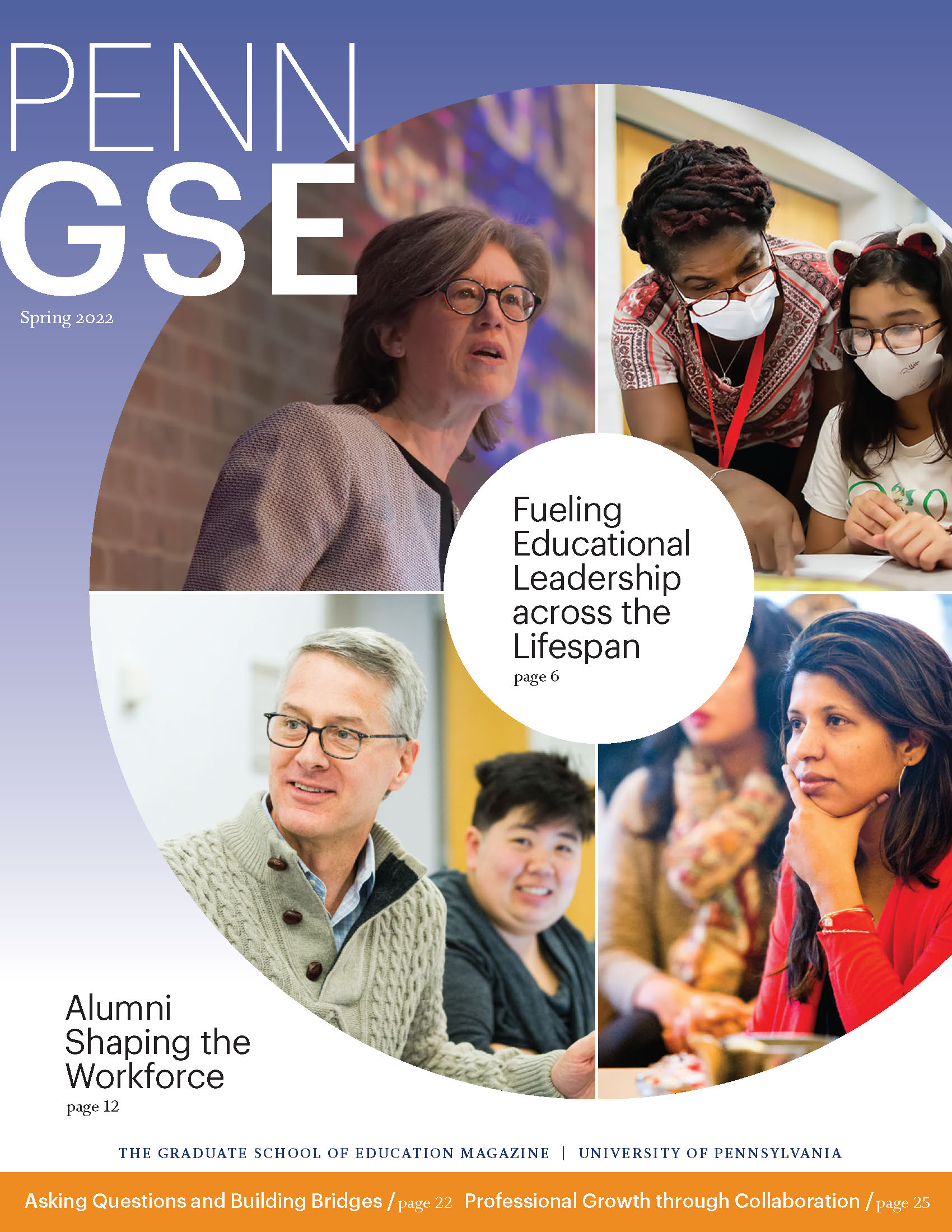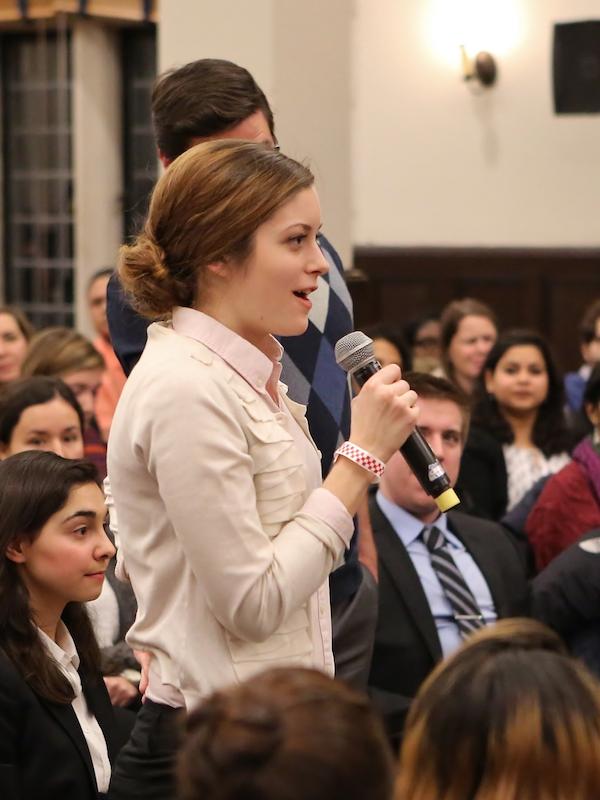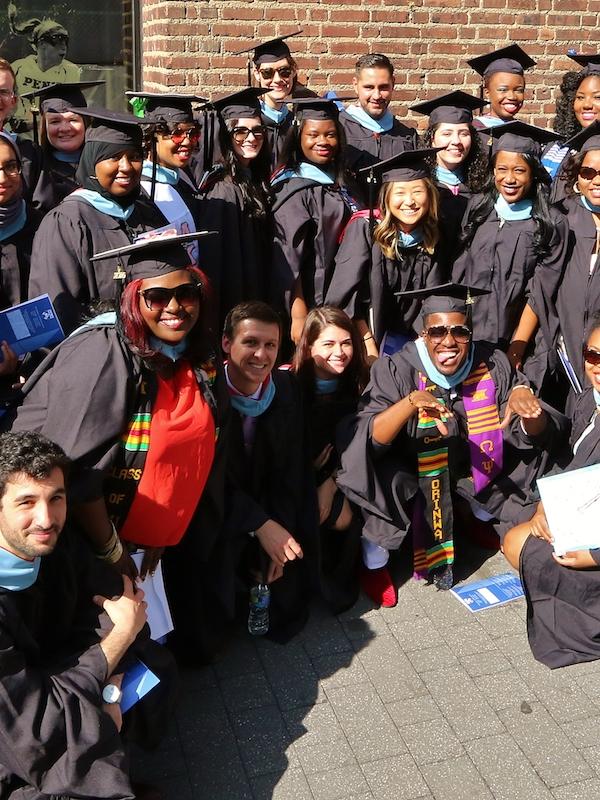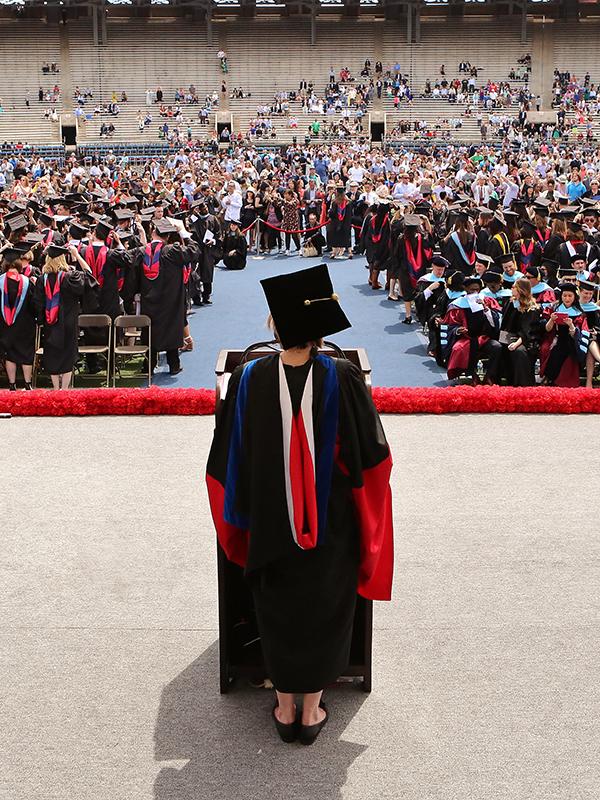Fueling Educational Leadership Across the Lifespan: Penn GSE Develops the Leaders of the Future for PreK–12, Higher Education, and the Workplace

The Executive Doctorate in Higher Education Management program directed by Dr. Diane Eynon (top left) and the Mid-Career Doctoral Program in Educational Leadership directed by Michael C. Johanek (bottom left) are two of four executive-format programs in educational leadership at Penn GSE spanning school, college, and workplace settings.
Photos credits clockwise from top left: David DeBalko Photography; Eric Sucar, University Communications; JPG Photography; and Lora Reehling
by Juliana Rosati
As the complex period that began with the COVID-19 pandemic continues, leaders of schools, educational institutions, and organizations are navigating a host of factors. Pressures related to physical and mental health concerns, shifts to and from virtual and hybrid formats, strained resources, heightened awareness of injustice, political polarization, and the “great resignation” continue to play out while the impending effects of climate change and artificial intelligence promise further uncertainty. Given the impact of the era on education and the workplace, Penn GSE Dean Pam Grossman sees educational leadership as a vital priority.
“At a time of incredible flux, education needs leaders who are prepared to respond to the accelerated rate of change, to turn challenges into opportunities, and to develop innovative solutions to complex problems,” says Dean Grossman, who points to Penn GSE’s leadership programs as a hub for the professionals who can shape a bright future. “No other Ivy League school of education offers the range of leadership programs that Penn GSE has,” she says.
“At a time of incredible flux, education needs leaders who are prepared to respond to the accelerated rate of change, to turn challenges into opportunities, and to develop innovative solutions to complex problems.”—Dean Pam Grossman, Penn GSE
At the center of this work are four of Penn GSE’s executive-format programs for working professionals: the School Leadership program, the Mid-Career Doctoral Program in Educational Leadership, the Executive Doctorate in Higher Education Management program, and the Penn Chief Learning Officer program. The School Leadership program leads to the Master of Science in Education (M.S.Ed.) degree and/or principal certification, while the others lead to the Doctor of Education (Ed.D.) degree.
Spanning public and private sectors, and levels from preschool through graduate school and adult learning at organizations including the military and Google, the programs exercise a powerful impact on education and workplace learning. Students report a two-way exchange between their learning and their jobs, one that allows them to apply new knowledge for the benefit of learners, and to gain valuable perspective on critical issues from faculty and classmates. Through a cohort model, in which students learn among a consistent group of peers encompassing a variety of personal and professional identities and backgrounds, the programs build dynamic networks. The result is a diverse pipeline of educational leaders who are prepared to effect change locally, nationally, and globally to produce the citizenry and the workforce of the future.
Creating Better School Environments: The School Leadership Program
For Walter Myrick, the inequities that came to the fore in schools during the pandemic were a call to effect change. An art teacher at AMY Northwest Middle School in The School District of Philadelphia, he turned to Penn GSE’s School Leadership program “to focus on the things that I would like to change as a school leader, knowing that Penn would give me the best preparation to do that.”
Over the course of the program’s eleven months, each cohort convenes on campus for one weekend per month plus two weeks in the summer, in addition to meeting monthly in a virtual format. Along with coursework, students undertake internships, school observations, and research projects, assembling a portfolio as they work towards the M.S.Ed. degree and/or principal certification. The program emphasizes the importance of collaboration as the basis for supporting preK–12 students.
“It’s a program that strongly supports the idea that good leadership revolves around trusting, caring, supportive relationships,” says Dr. Steve Piltch, senior fellow and director of the program, who served as head of The Shipley School in Bryn Mawr, Pennsylvania, for twenty-seven years.
That emphasis means lots of team-based work, which initially gave Myrick hesitation. “While I thought the team aspect might not be what I would like about the program, for me it has been the best thing about the program,” he says. In the fall, students are assigned to teams that blend students from the program’s public/charter and independent school tracks. In the spring, teams are based on the tracks.

“One of the things that we like best about the program is that people from public, charter, and independent schools learn from one other,” says Piltch.
Myrick reports that both teams have broadened his perspective. “You see that even though we may have a different experience, we do feel the same about the way education itself should work,” he says.
Increasingly, the program emphasizes equity-centered leadership and culturally responsive approaches. Guided by the book Culturally Responsive School Leadership by Dr. Muhammad Khalifa, the program encourages educators to reflect on their own cultural biases and seek to understand students’ backgrounds and perspectives.
“The book has spurred a lot of great conversations within our class contexts,” says student Alia Carponter-Walker, a middle school dean at Poly Prep Country Day School in Brooklyn, New York. She reports that the conversations have helped her in her professional role. “There’s a really big push for culturally responsive practices in the work I’m doing,” says Carponter-Walker.
Another key aspect of the program is mentoring. Each student identifies a mentor within their own school and also works with a University-assigned mentor from the program’s network of school leaders. Amy Rasner Clulow, GED’19, director of people and culture at The Athenian School in Danville, California, credits the mentorships with deepening her knowledge of independent school leadership.
“It allowed me to look differently at my role and allowed me extensive access to various areas of my home organization and my Penn mentor’s organization,” she says.
Relationships with mentors and classmates alike are meant to give students an enduring network. “One of the more important outcomes is that people create connections that last far beyond graduation,” Piltch says.
Beginning this summer, the program aims to have an increased role in developing leaders in The School District of Philadelphia by offering scholarships that support District employees admitted to the program.
“It’s a wonderful opportunity to further our mission of impacting the local school district and preparing a more diverse and equitable group of future school leaders,” says Jessica Richard, associate director of the School Leadership program.
For Myrick, the program’s approach is already having an impact. “I can feel myself growing as a leader,” he says. “When I write papers, I get that ‘aha moment’ because every assignment builds on everything we’ve learned so far.”
Amplifying K-12 Leaders’ Impact: The Mid-Career Doctoral Program in Educational Leadership
As dean and executive director of the Aspiring Superintendents Academy for the New York City Department of Education, Nikole Booker works to build a pipeline of future superintendents, drawing on her experience as a student in Penn GSE’s Mid-Career Doctoral Program in Educational Leadership.
Booker is a fellow in the Penn Educational Leadership Simulations (PELS), one of the program’s “network initiatives,” through which students and alumni contribute to the wider field. Through PELS, Booker gained experience creating “sandbox,” or example, scenarios in which leaders respond to situations they are likely to face. She has brought this approach back to her aspiring superintendents. “They receive data regarding a sandbox district, and based on that information, they are asked to engage in a whole host of activities,” she says.
Such a focus on the practices of leaders is a hallmark of the Mid-Career Doctoral program, according to Dr. Michael C. Johanek, senior fellow and director of the program. “Our premise is always that the most complex point of educational leadership is the point of practice,” says Johanek, an expert on school leadership and educational history. Grounded in inquiry, the program asks educators to examine their practice through reflection, dialogue, and listening. “This is a caring community where committed colleagues can wrestle with the larger questions of their field,” says Johanek.
Like the School Leadership program, the Mid-Career Doctoral program draws students from a variety of school and geographic settings. Over the course of three years, Mid-Career students— who typically have fifteen to twenty years of experience in education—convene on campus for monthly weekends and one week in the summer. They study instructional, organizational, public, and evidence-based leadership and undertake a dissertation.
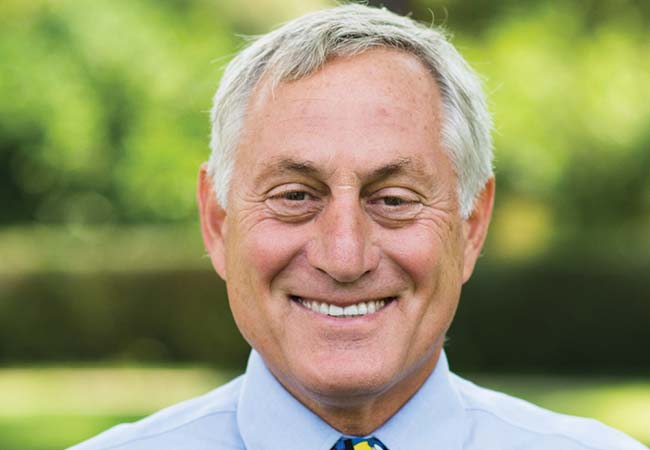
“One of the things that we like best about the program is that people from public, charter, and independent schools learn from one other.” —Dr. Steve Piltch, Senior Fellow and Program Director, School Leadership Program
Student Cyndy Jean, assistant head of school for community and inclusivity at Hackley School in Tarrytown, New York, leads diversity, equity, and inclusion (DEI) work for her school. “The program has helped me shape how I’m doing my work in this role, each and every day,” says Jean, whose dissertation focuses on leaders who, like her, are Black women leading DEI work in predominantly white institutions.
For Flannery O’Connor, GRD’19, principal of Cristo Rey Philadelphia High School, a dissertation about college persistence among her school’s alumni allowed her to make changes with the aim of improving her students’ college trajectories. “The program allows learning to be applicable to one’s direct experience in a particular educational setting,” she says.
Iván Rosales Montes, GRD’19, a principal in Alum Rock Union Elementary School District in San Jose, California, also implemented changes based on his dissertation, which considered the experiences of students categorized as both English language learners and disabled. “We were able to make some significant policy changes to enhance how we approach the redesignation of students,” he says.
As a student, Dr. Montes was a fellow in another of the program’s network initiatives, the Inter-American Educational Leadership Network, a collaboration with colleagues across Latin America. Montes now leads GSE fellows for the growing network of nine institutions, which hosts webinars as well as a conference that recently drew 3,300 attendees.
Such a reach is an important goal of the program, according to Johanek, who points to the program’s structure of opportunities for graduates. “We are committed to generative means by which our alumni can amplify their impact on the wider educational landscape,” he says.
Through the new Empowerment Through Education Scholarship at Penn GSE, the program is also seeking to strengthen the pipeline of future educational leaders who are members of underrepresented groups or who demonstrate a longstanding commitment to serving marginalized populations.
For Booker, the program is grounding her in a sense of purpose as she envisions the next chapter of a career that has included the roles of teacher, principal, and leadership coach. “Ultimately, this work is all about ensuring that systems, practices, structures, and resources are what they need to be so that young people are able to achieve whatever it is that they may want to achieve,” she says.
Shaping the Future of Higher Education: The Executive Doctorate in Higher Education Management Program
A desire to learn and improve drew Scott Beardsley, GRD’15, to Penn GSE’s Executive Doctorate in Higher Education Management program while he oversaw the worldwide learning and leadership development programs of global management consulting firm McKinsey & Company. He knew a doctorate could open doors to leadership in higher education, but wondered how to earn one while continuing his career. Penn GSE’s program offered a solution. “Between the quality of the program and the condensed format, it was almost too good to be true,” he recalls. The only problem was having to fly across the Atlantic from Belgium, where he lived at the time, to attend class—a challenge he accepted.
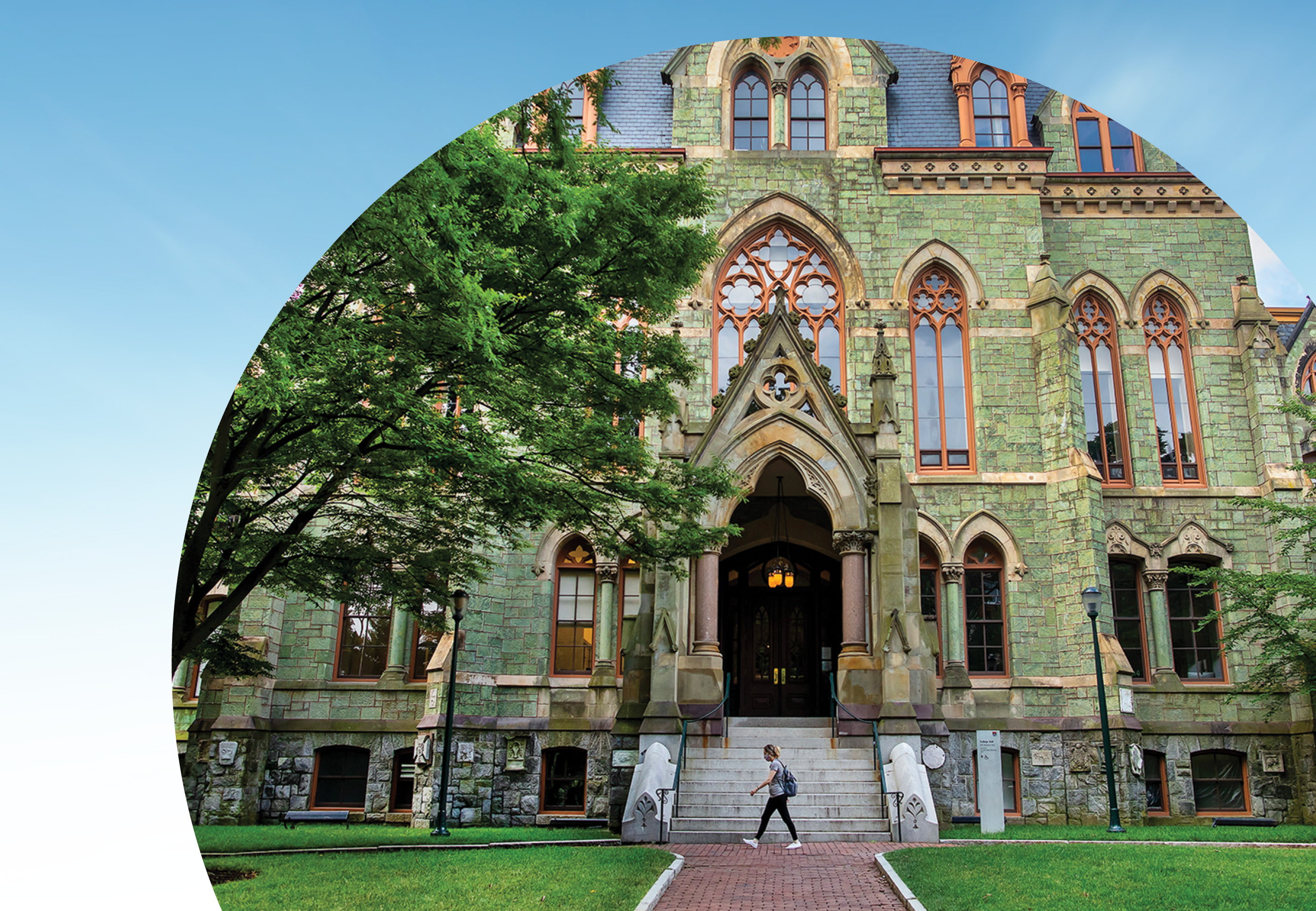
Today, having spent seven years as dean of the University of Virginia Darden School of Business and Charles C. Abbott Professor of Business Administration, he expresses great appreciation for Penn GSE’s impact on his knowledge and path. Reporting to M. Elizabeth Magill, Penn’s incoming president, in her role as UVA’s executive vice president and provost, he has sought to advance a mission of producing responsible leaders through transformational learning. He stepped into his role in 2015, shortly after graduating from Penn GSE. In December 2020, he was named Dean of the Year by Poets & Quants magazine, in part due to his leadership during the pandemic.
“Had I not done the program, it’s very unlikely that I would have ended up in the role I have,” he says. “What I learned from my classmates and my professors made me better equipped to lead in the field.”
Learning from a close-knit community is at the heart of the program, according to Diane Eynon, GRD’10, senior fellow and director of the program. “Students learn as much from one another as they do from the faculty, and they build the trust to be able to bring the challenges they’re facing professionally into the classroom,” says Dr. Eynon, a graduate of the program with more than twenty-five years of experience in international education and business.
Considered the premier doctoral program of its kind, and offered within Penn GSE’s top-ranked Higher Education division, the Executive Doctorate program draws leaders nationally and globally. Its community of nearly four hundred alumni includes more than 45 college presidents. While most come from within higher education, an increasing number, like Dr. Beardsley, come from other fields.
The shortest of Penn GSE’s executive-style doctorate programs, the Executive Doctorate takes place over an intense two years. Students convene for monthly sessions on campus, participate in a two-week international experience, and write a dissertation, all while maintaining their full-time jobs.
For student Darren Conine, vice president for enrollment and dean of admission at Merrimack College in North Andover, Massachusetts, support from his cohort is essential. “You always have those twenty individuals who are facing the same challenges as you, and that’s extremely important when you’re doing this much work,” he says. Through his dissertation, Conine has explored how higher education institutions can improve student retention in the face of approaching demographic shifts.
Sharistan Melkonian, GRD’19, dean of general education at American University of Armenia, credits the support of the program with preparing her to move from director of accreditation into her current role. “I became much more confident, and developed an exceptionally resourceful and supportive network, and that came from engaging with both the cohort and the faculty,” says Dr. Melkonian, whose institution opened when Armenia declared independence from the Soviet Union in 1991 and aims to double in size over the next five years.
As the program enters its twenty-second year, Eynon points to its alumni community—reinforced by an alumni advisory board and an annual conference—as a powerful force. Beardsley, who received the program’s Distinguished Alumni Award at the 2022 conference, agrees. “So many amazing leaders come through the program, who go on to produce the next generation of leaders that we need in all domains in order to make our world function,” he says. “I think the program does a great service to the country and society.”
Producing Scholar-Practitioners for the Workplace: The Penn Chief Learning Officer Program
As chief learning officer for MasterCard, Ann Schulte, GRD’10, enjoyed overseeing staff training and development but sought a deeper grounding in her profession. Penn GSE’s Chief Learning Officer (PennCLO) program, then relatively new, captured her attention.
“The program was designed for the ‘scholar-practitioner,’” recalls Dr. Schulte. “This was a totally new term for me and one that resonated with my personal identity.” The term is key to the program’s mission, according to longtime PennCLO director Dr. Annie McKee, a bestselling author and a global leadership consultant named one of Business Week’s top 100 leaders. “We are attempting to break what has been a nearly impermeable wall between the workplace and academia,” she says. “We want organizational leaders to gain academic research skills so they can practice evidence-based decision making,” she says.
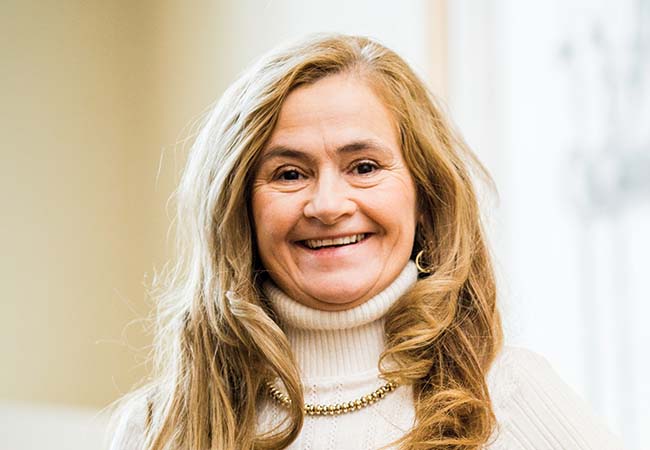
“We are attempting to break what has been a nearly impermeable wall between the workplace and academia.”—Dr. Annie McKee, Penn Chief Learning Officer Program
Schulte reports that the program equipped her to do just that as senior vice president of global talent development at Procter & Gamble, a role in which she now supports the learning and development of more than 100,000 employees in approximately 70 countries. “The academic theories of adult learning give credibility to my choices as I link talent strategies to business outcomes,” she says.
Dedicated to learning in the workplace, the PennCLO program is considered the first of its kind. It draws mid- to senior-level leaders responsible for employee training, talent recruitment, and culture in a variety of sectors and a range of organizations including Dell, JP Morgan, and Verizon. Over three years, students work towards the Ed.D. degree, meeting for one on-campus and one virtual week each semester and undertaking a dissertation. GSE and Penn faculty and an array of industry leaders teach about leadership, learning, business, evidence, and technology. Recently, graduate Lilian Ajayi-Ore, GRD’20, was a finalist for the 2022 OnCon Icon Top 100 Learning & Development Professional Award.

“Most people who come to this program are very successful, but they have a desire to understand things in a deeper way. They learn to question assumptions about adult learning at work, and they emerge transformed,” says McKee, who cites a dramatic increase in U.S. minority enrollment in the program as one of her proudest accomplishments.
Student Chris Bittinger, president of leadership consulting company Open Pivot in Carmel, Indiana, seeks a deeper understanding of how executives manage stress and mitigate burnout through his dissertation. The topic is of urgent interest to his clients, leaders in multiple industries. “Every leader is saying, I’ve got all this disruption, but I’m drained and exhausted—how do I lead my team?” reports Bittinger.
Student KimArie Yowell, chief learning officer at financial technology company Rocket Central in Detroit, Michigan, is researching the experiences and perceptions of Black women in Fortune 500 companies for her dissertation. She was impressed by the PennCLO curriculum’s theoretical and practical relevance during the pandemic.
“As a leader in my company who was responsible for helping lead us through the challenges of 2020, I found value from our class discussions and could immediately apply the lessons back to my work. The leaders of the program ensured the content was dynamic and addressed the major events of the world,” she says.
This spring, the program faces another shift as McKee steps down from her position and current student Raghu Krishnamoorthy prepares to step in, soon to become the first PennCLO alumnus to serve as director. McKee welcomes Krishnamoorthy, who has spent decades in organizational learning, human resources, and management at GE, most recently as senior vice president of human resources. “There is no other person that I would rather see in this role than Raghu,” she says.
Krishnamoorthy echoes her appreciation. “Annie has been the anchor of the program and leads an extremely strong brand. To follow her is a real honor and a privilege. I see it as my calling to take advantage of the goodwill and the capital this program has and elevate it to the next level.”
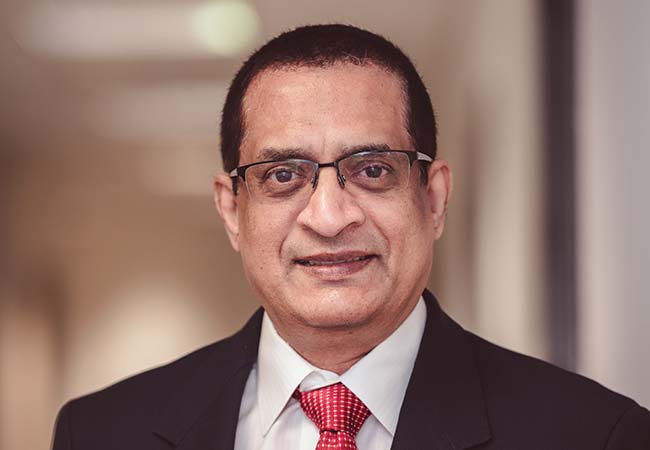
“I see it as my calling to take advantage of the goodwill and the capital this program has and elevate it to the next level.”—Raghu Krishnamoorthy, Penn Chief Learning Officer Program
For Schulte, who regularly teaches in the program, perhaps its greatest legacy is its community. “The program created a new network—a new orbit entirely—of colleagues with a like-minded commitment to growing our profession and ourselves,” she says.
For Dean Grossman, the four leadership programs represent both a legacy of the School and a foundation for the future. Going forward, she envisions increased exchange and collaboration among the programs to further capitalize on their strengths in light of the ever-changing landscape ahead. “Collectively, our programs are poised to address the future of learning across the lifespan,” she says.
This article appeared in the Spring 2022 issue of The Penn GSE Magazine.

